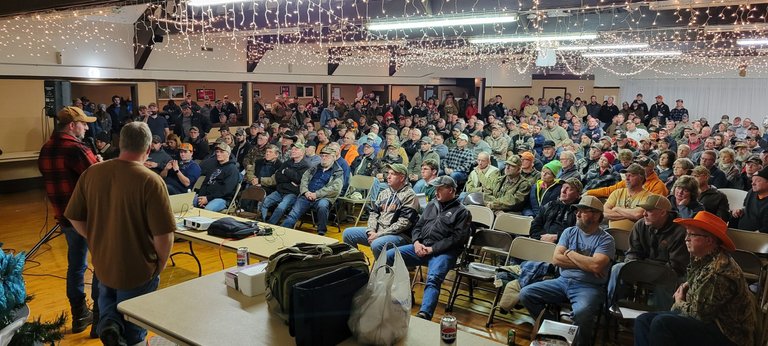(And the wolf debate is symbolic of our fragmenting society.)
**
This was Romeo.

Just days ago, this Bernese Mountain Dog was killed by a pack of wolves up in northeast Minnesota. The details of his death are as gruesome as you might imagine a wolf attack to be, and it happened in front of his owners just outside their house. As soon as the pack attacked, the husband went inside to get a broom—anything—to beat the wolves away. But it was too late.
I learned of this yesterday researching my story about the wolf issue in Minnesota (and other states as well). It's the same issue in Colorado and Idaho as it is here: a beloved animal people fight to protect, but one that also can cause serious harm. It's not a new issue, but we're in a new era of human connectivity. And with the power of the internet, wolf advocates are more influential than ever while stories like Romeo's also go viral, stoking the anger of those affected by the many wolves. This includes farmers losing livestock and hunters who've seen deer numbers dwindle. Now (again, thanks to the power of the internet) a group called Hunters For Hunters is rapidly gaining followers as well as attendees at their many (now a dozen) town hall events packing community centers across rural communities in Minnesota.

Minnesota is unique from most other states in having almost half of the wolves in the contiguous U.S. Yet they are beholden to the same federal policy since grey wolves remain on the endangered species list. As such, if that husband would've killed one of those wolves attacking Romeo, he would've been guilty of a felony. Seems unreasonable, especially in a place where wolves are plentiful. But that's the issue with blanket policy not appropriate for all the areas it covers. And it's why this issue of wolves in Minnesota—in a time when people are so fragmented—is especially tense.
With wolf advocacy groups regularly lobbying for protections on one hand, and an eruption of concerned citizens now demanding a wolf hunt on the other, what's the state to do?
The truth is that in an ideal world, we can see how things didn't need to get this far—to the point of seeing Romeo and at least three other dogs I've learned about the past few months all being viciously killed in Minnesota. Wolves have long had a healthy population in the state, warranting their removal from the endangered species list a few years back, but regular legal challenges to this removal saw them put back on the list. The reason for this continued push for wolf protections? Many people just really like wolves and are worried about them being hunted. But now wolves are so prominent, and deer numbers are so low, that wolves are looking elsewhere for food. This makes more people upset and demanding a hunt, which concerns the wolf advocates even more into lobbying for protections. And on and on we go.
All this demonstrates how the speed and fragmentation of our society is outgrowing the institutions we've relied on to regulate it for so many years. State lawmakers and the DNR struggle to appease its population of wolf advocates and wolf victims. Sometimes they succumb to the demands of one group, straying from the middle ground so desperately needed in radical times.
This matter of finding new ways to manage a fragmenting population is really what my upcoming piece on the wolf issue in Minnesota is all about.
It's mostly written, and I'm currently shopping it around. If nothing else, I'll share it independently here and elsewhere. Frankly, this route would be more in the spirit of this story anyway—which, in its conclusion, points to a decentralized approach to policy as the best way forward for a diverse society such as ours.
If we can tailor policy according to the needs of local populations, I think it can relieve some of the social pressure causing our societal pot to boil over so frequently—and we'll have better policy, which, in this case, means fewer Romeos taken too soon.